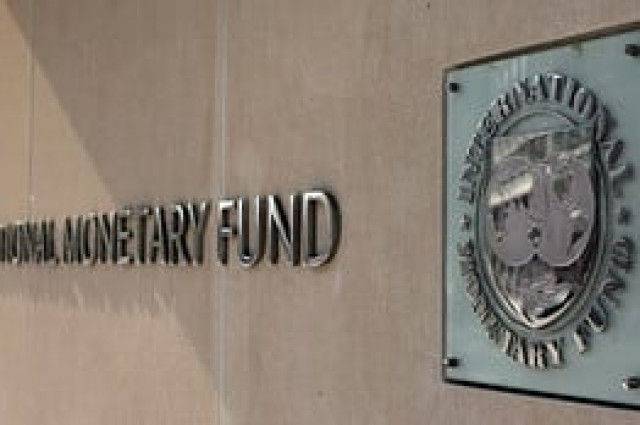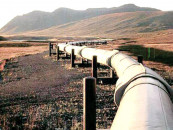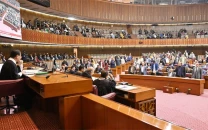Pakistan’s budget woes keep IMF cycle alive
The more the govt spends, the more it resorts to taxation and borrowing; simply put 'govt spending is taxation'

Pakistan, having a troubling history with interventions by the International Monetary Fund (IMF) due to profligate spending and budget deficits financed by domestic money creation and foreign borrowing that result in balance of payment crises, suggests that the fundamental problems behind these crises have never been corrected. The recurrent nature of these crises, in part, may be attributed to the planning horizons of the government in power.
If the horizon is fairly short, confined to the government's expected term, the only policies adopted will be those whose realised benefits exceed realised costs during that term. Benefits and costs occurring after the government's term are totally ignored. This behaviour, which we call myopic, does not maximise the long-run well-being of the country and will unambiguously increase the likelihood of a crisis in the future.
To reduce the probability of a financial crisis, an institutional change that lengthens the planning horizon of the government is required. Historically, this has often been brought about by IMF intervention in domestic economic policymaking. While foreign interventions may lengthen economic policy horizons temporarily, they do not permanently guarantee the elimination of financial crises. Once foreign interventions cease, governments are likely to embark on another series of myopic policies that threaten to culminate in another financial crisis. Hence the recurrent nature of financial crises in Pakistan.
A permanent solution to the problem requires measures that force governments to adopt economic planning horizons that extend beyond their terms in office. Major steps in this direction include restrictions on domestic money creation and foreign borrowing, limiting government spending, and rationalisation of the tax system. Money creation, borrowing, and taxes finance government expenditures and therefore are the three most important policies to attain fiscal discipline.
Foreign borrowing
The fundamental rule of borrowing is that a country's foreign debt should never exceed its borrowing capacity. Creditors and international organisations such as the IMF and the World Bank monitor total indebtedness and borrowing rates. The higher the total debt and/or new borrowing, the greater the degree of scrutiny by international organisations – and the more costly it becomes for the country to obtain new loans.
Of particular concern is the long-run implication that myopic behaviour is likely to result in a crisis where the government cannot meet its international financial obligations. Over time, foreign debt will grow exponentially to the point where more borrowing is required, and the country eventually succumbs to a "debt trap," as is Pakistan's case. Excess borrowing will once again result in a balance of payments crisis.
Money creation
The primary role of any central bank is to keep inflation in check and its currency stable. Inflation is driven by money supply, not interest rates. Central banks control the monetary base 100%. The monetary base consists of currency in circulation, reserves held by member banks at the central bank, and vault cash.
To understand inflation, one must look at money supply in relation to demand. For example, if the central bank increases supply by 5% while demand rises by 10%, inflation and interest rates will decline, and the currency will remain stable. If, on the other hand, supply rises by 5% while demand is unchanged, excess liquidity will drive up inflation and interest rates while weakening the currency. Any excess money creation eventually results in a balance of payments crisis.
Government spending and taxes
Limiting government spending is essential and should not exceed the ability to collect tax revenues. The more the government spends, the more it resorts to taxation and borrowing. Simply put: "government spending is taxation."
Currently, most of Pakistan's tax revenues go toward debt servicing and repayments, leaving no fiscal space for development or to absorb external shocks. This myopic behaviour is likely to result in both political and financial crises.
A rationalisation of Pakistan's tax system is urgently needed, and long overdue, to correct fiscal imbalances. Distorting and punitive taxes only increase avoidance and evasion. The types of avoidance and evasion depend, in part, on the nature of the taxes imposed. High tax rates on sales, individual income, and business profits stimulate the underground economy. Import restrictions result in smuggling.
Initially, higher tax rates may increase revenues, but over time avoidance and evasion reduce the tax base. Tax authorities then spend more resources to maintain the base, making collection costlier. If collection costs rise faster than revenues, the maximum tax yield is reached at a rate far below 100%. This relationship between tax rates and revenues is described as the Laffer Curve.
The Laffer Curve also depends on the government's planning horizon. A static Laffer Curve describes the relation between tax rates and current revenues without considering the future effects of current policies. A dynamic Laffer Curve incorporates both current and future consequences.
Governments with long horizons design tax systems that maximise revenues beyond their tenure. Governments with short horizons impose systems that maximise current revenues. Put differently, the Laffer Curve faced by a myopic government differs from the dynamic Laffer Curve faced by a long-horizon government that seeks to maximise revenues over extended periods.
The lesson
Myopic governments with short planning horizons increase the likelihood of future crises. Governments with long horizons, by contrast, create stronger economies capable of withstanding shocks. Furthermore, if these policies are implemented within a democratic process, the chances of the political system's survival also improve.
THE WRITER IS A PHILANTHROPIST AND AN ECONOMIST BASED IN BELGIUM




















COMMENTS
Comments are moderated and generally will be posted if they are on-topic and not abusive.
For more information, please see our Comments FAQ